The Acropolis of Athens
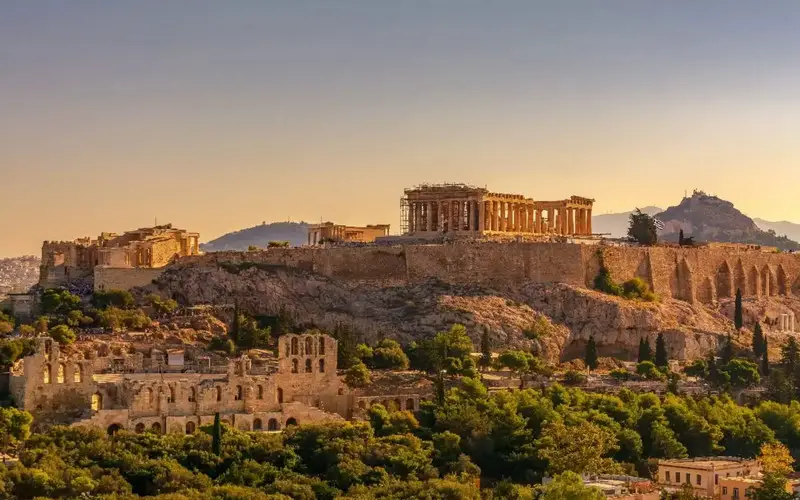
No exploration of ancient Greece is complete without a visit to the Acropolis of Athens. Perched high on a rocky hill, this iconic ancient citadel is a symbol of Greek heritage and a testament to the genius of Athenian architecture. The Parthenon, a temple dedicated to the goddess Athena, is the most famous structure on the Acropolis, renowned for its Doric columns and intricate sculptural friezes.
Built in the 5th century BC, the Acropolis not only served as a place of worship but also as the epicenter of political and cultural life in ancient Athens. History lovers will be captivated by the rich history and mythology surrounding this site, as well as the breathtaking panoramic views of Athens from the Acropolis.
Delphi
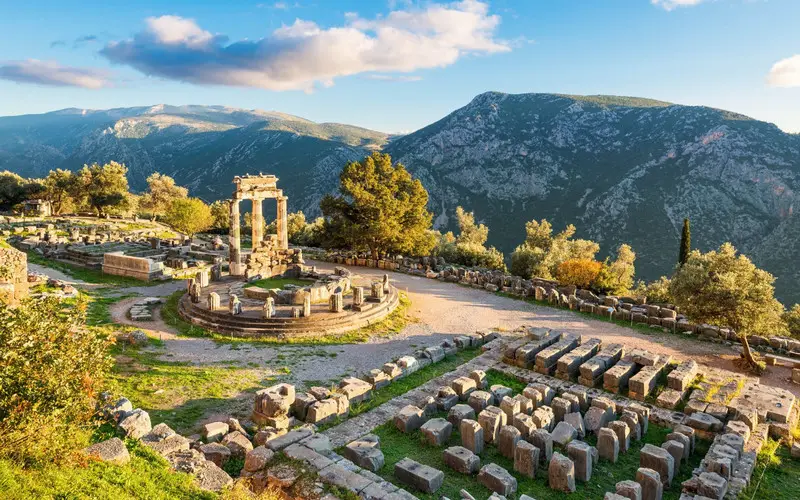
Delphi, once considered the center of the world in ancient Greek mythology, is a UNESCO World Heritage site known for its oracle and breathtaking mountainous setting. Delphi was home to the Pythia, a priestess believed to possess the gift of foresight, who would provide cryptic prophecies to pilgrims and rulers.
The site’s most prominent feature is the Temple of Apollo, the god of prophecy, but Delphi also boasts the impressive theater and the Tholos of Delphi, a circular building of great historical significance. History enthusiasts will be fascinated by the intricate stories that surround Delphi, as well as its unique blend of history, mythology, and stunning natural beauty.
Olympia
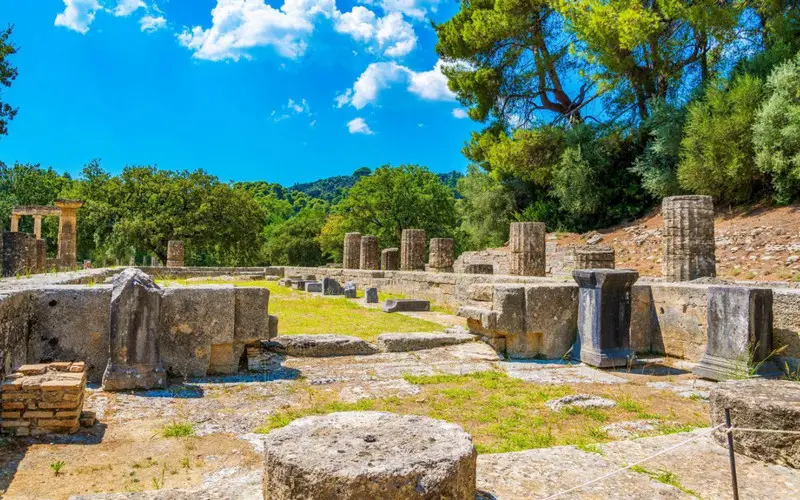
For those who admire the intersection of history and sports, Olympia is a must-visit destination. This ancient site is the birthplace of the Olympic Games, the most celebrated athletic competition in the ancient world. The Games, which began in 776 BC, took place every four years and were dedicated to the Greek god Zeus.
At Olympia, you can explore the ancient stadium, gymnasium, and temples, including the Temple of Zeus. The statue of Zeus at Olympia, one of the Seven Wonders of the Ancient World, was also housed in this temple. Olympia’s rich history and its connection to the Olympic ideal make it an essential stop for history enthusiasts.
Mycenae
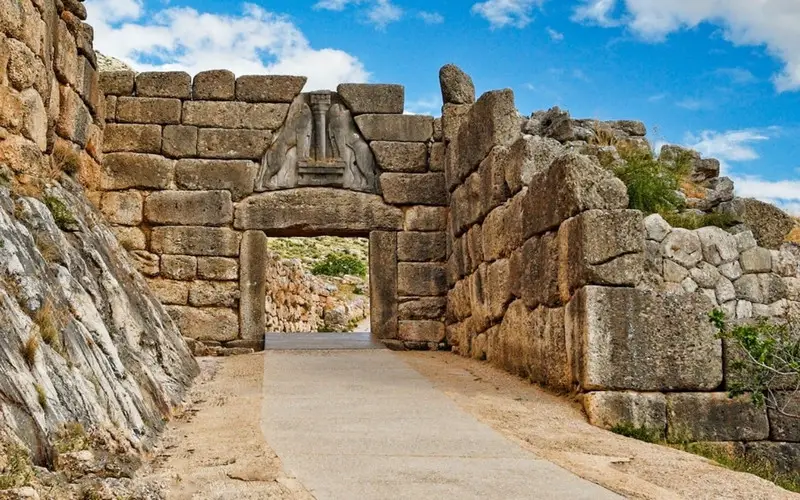
Mycenae is an ancient city with a history that predates even classical Greece. It is renowned for its massive stone fortifications, which include the famous Lion Gate and the Treasury of Atreus, a beehive-shaped tomb. According to legend, Mycenae was founded by Perseus and was the home of Agamemnon, a central figure in Greek mythology and the Trojan War.
Visitors can explore the ruins of the citadel and the associated tombs and graves. Mycenae provides a fascinating glimpse into the pre-classical history of Greece and the rich mythological narratives that still captivate history lovers today.
Epidaurus

Epidaurus is known for its remarkably well-preserved ancient theater, which is renowned for its acoustics and remains in use for performances to this day. This site is closely associated with the Greek god of healing, Asclepius, and served as a sanctuary dedicated to the treatment of the sick.
History lovers can admire the architectural excellence of the theater and explore the nearby Epidaurus Archaeological Museum. The combination of healing traditions and ancient theater makes Epidaurus a unique destination for those interested in the multifaceted aspects of Greek history and culture.
Knossos
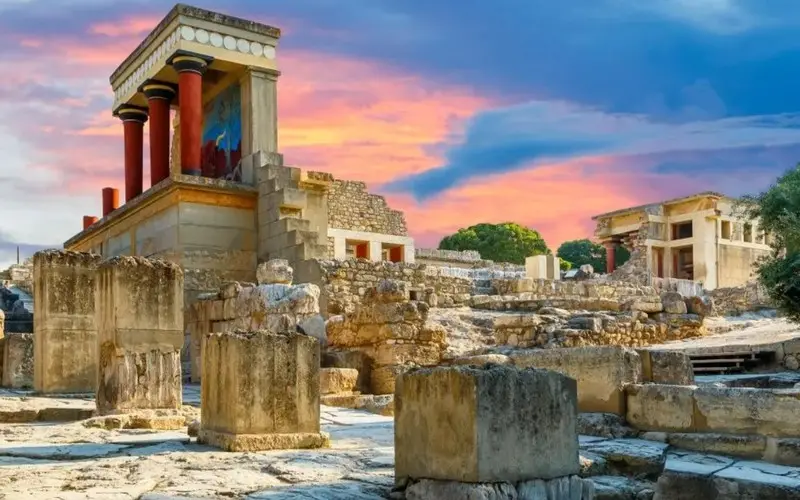
For lovers of ancient Minoan civilization, Knossos on the island of Crete is a fascinating site. The palace of Knossos, known for its labyrinthine layout and association with the Minotaur myth, was the center of the Minoan world. The Minoans, Europe’s earliest advanced civilization, left behind a legacy of stunning frescoes, artifacts, and architectural marvels.
Visiting Knossos offers history enthusiasts a glimpse into the sophisticated Minoan culture, with its intricate artwork and advanced architectural techniques. The site is a testament to the ancient island’s sophistication and its role in the broader tapestry of Greek history.
Corinth
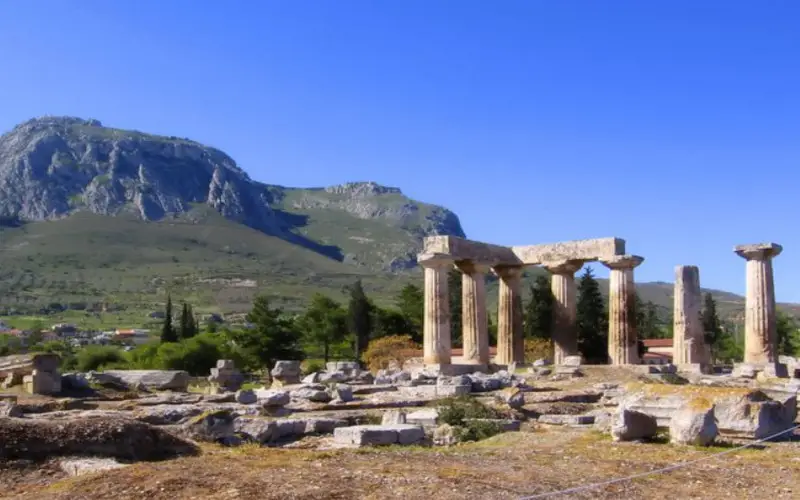
Corinth, strategically located between mainland Greece and the Peloponnese, played a crucial role in ancient Greece’s political and economic landscape. The city is best known for the Acrocorinth, a fortified hilltop offering panoramic views of the surrounding region.
Corinth’s archaeological site includes the Temple of Apollo, ancient baths, and the famous Bema, from which the Apostle Paul is said to have addressed the Corinthians. It is a site that beautifully illustrates the interplay of ancient history, culture, and trade.





















